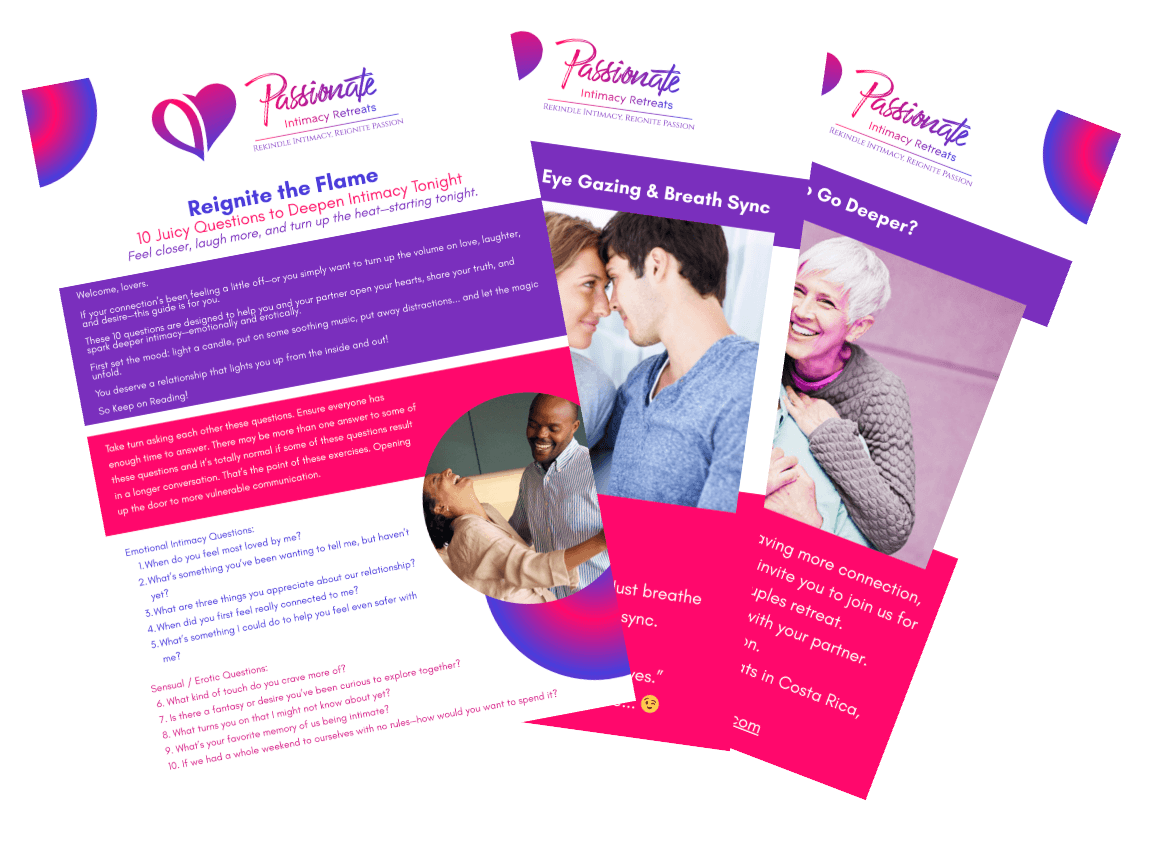Infidelity as a Wake-Up Call: Can a Relationship Heal After Betrayal?

Lately, I’ve had a number of clients who are dealing with infidelity in their marriages.
Without a doubt, this is one of the most challenging issues I work with—and it’s a huge rupture in trust. The sense of betrayal is immense. The partner who was cheated on begins to question everything they thought they knew: “Were they really at a friend’s house that night?” “Was that business trip actually a cover?” “How long has this been going on?” “Were there others?”
More than any other relational rupture, infidelity tears apart the fabric of what a couple has built over the years.
And yet, here’s the hard truth I always share:
Affairs don’t happen out of thin air.
You don’t just wake up one morning, happily connected to your partner, and decide, “You know what sounds fun? Cheating.” That’s not how this works. That’s not how human hearts and relationships work.
Affairs happen because something—usually many somethings—have gone unspoken, unhealed, or unattended for too long.
The Roots of Betrayal
When I sit with a couple facing the fallout of infidelity, one of the first things I do is gently but firmly invite them to confront the truth of their relationship before the affair.
And what often surfaces is this:
- They were emotionally disconnected.
- Communication had broken down.
- Resentments were building under the surface.
- They hadn’t had sex in months—or if they did, it felt obligatory or mechanical.
- They were living parallel lives—functioning more like roommates than lovers.
- One or both felt unseen, unheard, or undesired.
This is not to excuse the betrayal. Never. But it does help illuminate the conditions that made their relationship vulnerable to rupture.
And sometimes, the cheating partner doesn’t even know why they did it until we dig deeper. Often, they describe feeling numb, lonely, or like a part of themselves had disappeared in the monotony of life. The affair—whether emotional or sexual—wasn’t just about attraction. It was about feeling alive again.
What Type of Affair Was It?
Not all affairs are the same, and understanding what kind of affair took place helps us begin the healing process.
Some of the most common types I see:
- Emotional Affairs: These often start with friendship and drift into deeper emotional intimacy, eventually surpassing the intimacy of the primary relationship. There may or may not be sex involved.
- One-Night Stands or Opportunistic Affairs: Often driven by alcohol, poor boundaries, or unresolved resentment. These tend to be more impulsive.
- Ongoing, Long-Term Affairs: These are often the most painful, as they require sustained deception and emotional compartmentalization.
Each type requires a different kind of healing. But in every case, there is pain, shame, and a total disorientation around what’s real—and what’s not.
Rebuilding After the Bomb Drops
So… can you come back from infidelity?
The answer isn’t simple. But I’ve seen couples not only survive infidelity—they’ve come out on the other side more connected, more authentic, and more passionately in love than they were before.
Here’s how.
1. Both partners must be willing to face the truth.
That means the partner who cheated must take full ownership of their choices—without minimizing, blaming, or gaslighting. And the partner who was betrayed must be willing to explore—not condone—the state of the relationship that existed before the affair.
There is no healing without truth. That includes the hard truths about emotional disconnection, sexual dissatisfaction, and unmet needs on both sides.
2. There must be radical honesty and transparency.
In the immediate aftermath of discovery, many betrayed partners feel a deep urge to know everything. And while it’s not always helpful to get graphic details, transparency builds trust.
What apps were used? What was said? When did it start? How did you hide it?
The partner who cheated needs to become an open book—sometimes literally. Passwords. Phones. Calendars. Not as a long-term control strategy, but as a short-term act of repair.
3. The betrayed partner must be allowed to grieve.
Infidelity is a form of loss. The loss of the relationship you thought you had. The loss of innocence. The loss of safety. And like any grieving process, it doesn’t follow a straight line. There will be rage, sadness, confusion, and numbness—often all in one day.
This is not the time to rush to “get over it” or prematurely forgive. The grief must be witnessed and honored.
4. You must build a new relationship—not try to repair the old one.
Here’s the gift inside the pain: An affair can serve as a wake-up call.
It cracks the foundation—and that gives you the chance to rebuild from truth, not illusion.
Couples who make it through infidelity often say things like:
“We don’t have the same relationship we had before. We have something deeper. Something more honest.”
They learn how to ask for what they need. They reconnect sexually—not from duty, but from desire. They learn each other’s attachment styles. They become better communicators. They start telling the truth—even when it’s scary.
Why Infidelity Recovery Requires More Than Just Time
You may have heard the phrase “time heals all wounds,” but that’s not true when it comes to betrayal.
Time does not heal what you are unwilling to face.
That’s why so many couples remain stuck in limbo after an affair—technically “together” but emotionally distant, sexually shut down, and never fully repaired.
If this is you—or someone you love—please know this:
You don’t have to navigate this alone. Affair recovery is possible… but it’s delicate, and it requires expert guidance.
That’s why I do the work I do—through private couples retreats, deep intimacy repair sessions, and tailored coaching.
Is There Hope?
Yes. But it requires both of you to show up fully.
To tell the truth.
To hold space for the hurt.
To choose repair, again and again.
One of my favorite things to witness as a coach is when a couple—who entered my retreat heavy with pain and guardedness—emerges days later lighter, more open, and genuinely connected.
I’ve seen hands intertwined again after months of distance. I’ve seen tearful apologies. I’ve seen sex reawaken—not because someone said “we should,” but because desire returned on its own once safety was restored.
You don’t have to go back to the way things were.
You can create something even better.
Final Thoughts
Infidelity is often viewed as the end.
But for couples who are willing to do the work, it can become a beginning—a rebirth into something more intimate, more honest, and more resilient.
No, you can’t go back. But you can go forward.
If you’re navigating the aftermath of an affair and need support, you don’t have to do it alone.
My private couples intimacy retreats and 1:1 coaching offer a safe, compassionate space to repair, reconnect, and rediscover what’s possible for your relationship.
Book a free consult to see if a private retreat is right for you.









